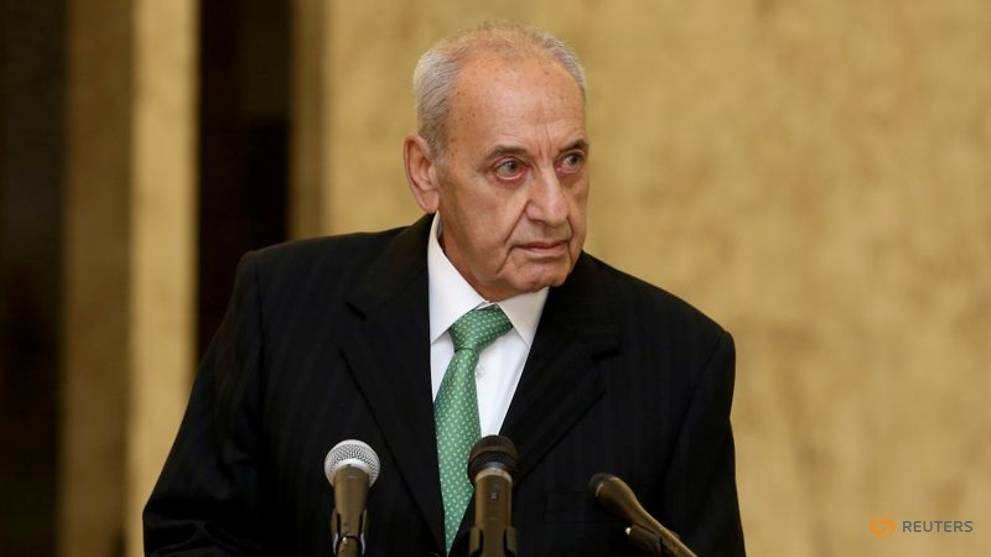
Lebanon faces hurdles to deliver cabinet on time
BEIRUT: Lebanon faces an uphill struggle to deliver a new government next week as promised by its leaders to French President Emmanuel Macron, with new US sanctions on Hezbollah allies complicating the process, Lebanese political sources said.
Any delay would deal a blow to a French initiative aimed at delivering Lebanon from the deepest crisis since its 1975-90 civil war by reforming the corruption-ridden state. France has warned that Lebanon could disappear unless it reforms.
Prime Minister-designate Moustapha Adib, nominated by Lebanon's fractious politicians under French pressure on Aug. 31, has been working to get a cabinet in place within two weeks to set about reforms laid out in a French roadmap.
The sources said a government could yet emerge in the next few days. The stakes could hardly be higher as Lebanon grapples with a financial meltdown and the aftermath of a catastrophic port explosion in Beirut on Aug. 4.
The already complex task has been made more so by U.S. sanctions on the senior aide to Shi'ite Parliament Speaker Nabih Berri and a Christian politician, three political sources familiar with the process said.
Forming new Lebanese governments typically takes many months of bartering over how to share out portfolios among Christian and Muslim factions.
The new U.S. sanctions were imposed on Berri advisor Ali Hassan Khalil, a former finance minister, and Christian politician Yusuf Finyanus, a former public works minister.
Washington says it shares French goals in demanding reform in Lebanon but differs with Paris over its policy on Hezbollah, a heavily armed Shi'ite group backed by Iran. Washington deems it a terrorist organisation while France views it an elected part of the system.
Some observers believed the U.S. sanctions and the threat of more to come could catalyse the government formation, arguing this will make Hezbollah allies such as President Michel Aoun's Christian Free Patriotic Movement more cooperative.
But Berri, shocked by the sanctions on Khalil, responded by hardening his stance on naming the next finance minister, a post he has decided since Khalil first took the job in 2014, according to the three sources from different Lebanese factions.
"KNEE-JERK REACTION"
This makes it harder for Adib to achieve his goal of changing the leadership in that ministry and others where donors want to see reform, said one of the sources, all of whom spoke on condition of anonymity due to political sensitivities.
Several of these ministries have been controlled by the same factions for years and they will resist letting go if Berri gets to name the next finance minister.
"There is definitely a complicating factor from the U.S. sanctions," said the source from outside the Shi'ite camp.
"Hours if not minutes before the sanctions, all the indications were positive, that (the Shi'ite camp) were going to facilitate the government formation. Immediately after the sanctions, there was this knee-jerk reaction," the source said.
The question now is whether Berri and Hezbollah will give ground, to support the French initiative and stop Lebanon slipping deeper into trouble. This should become clear in the next 48 hours, the source said.
A political source familiar with Hezbollah and Amal's thinking said that, while the finance ministry had been up for negotiation before the sanctions, Berri was now completely determined to name the minister.
A diplomat said on Thursday there had always been scepticism that a cabinet could be agreed in two weeks.
Political sources say Adib, who is seeking to form a cabinet of experts to deliver reform, has said he will step down if he is unable to proceed according to plan.
The U.S. sanctions are not the only complication.
Adib, who was nominated by former prime minister Saad al-Hariri, is drafting his cabinet line-up without consulting other parties, a Christian political source said.
"Shi'ites and Christians will find it unacceptable that their ministers are picked by the Sunni prime minister unilaterally," said a Christian political source. The source said the ministers should be picked jointly, the same way Adib was.